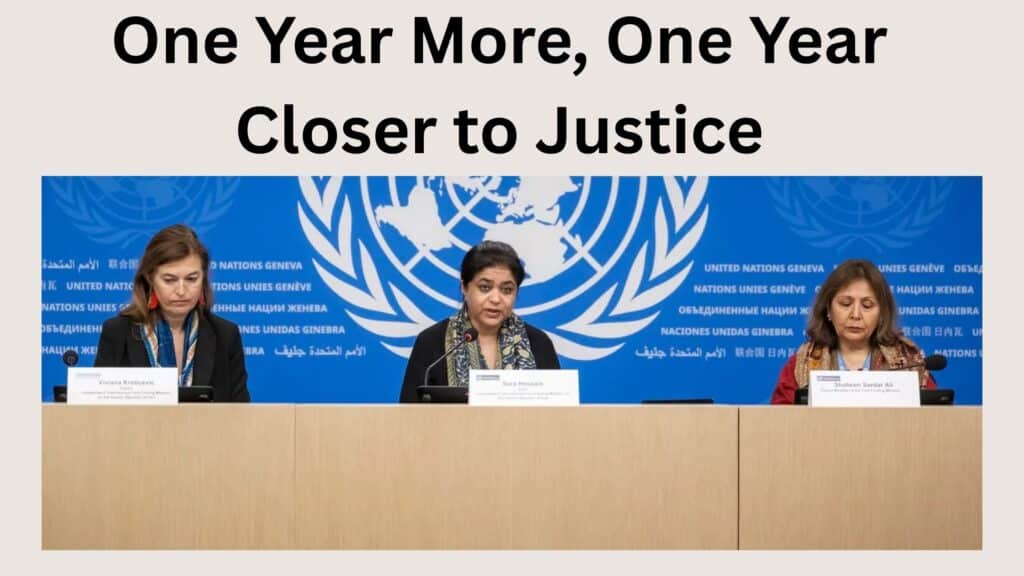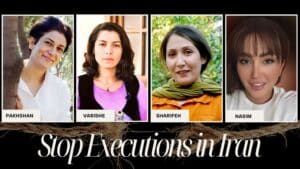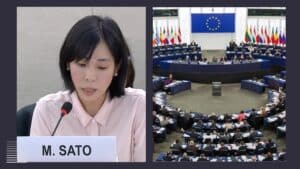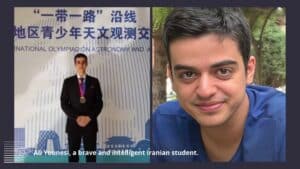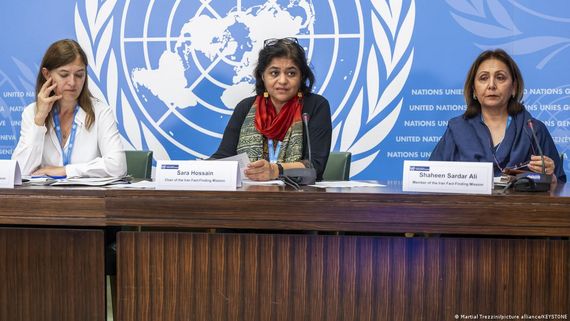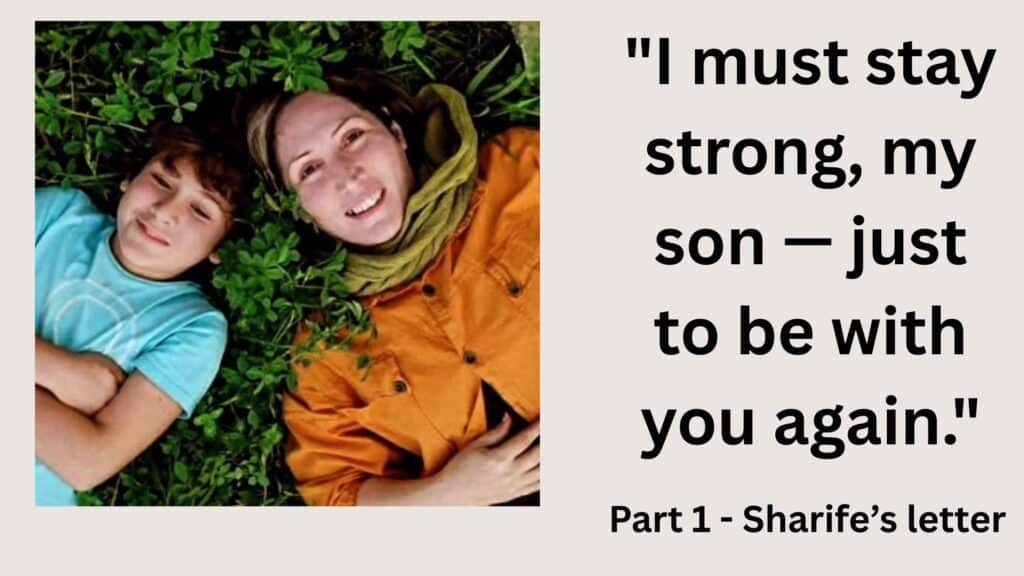In April 2025, the United Nations Human Rights Council made a historic and urgent decision: it voted to extend the mandate of the Independent International Fact-Finding Mission on Iran for another year. Through resolution A/HRC/58/L.20, the Council affirmed that the grave human rights violations committed by the Iranian regime are not a matter of the past—they are ongoing, systematic, and demand continued international scrutiny and action.
This extension is more than a procedural move. It is a global declaration that the world is watching—and that justice will not be abandoned. The Fact-Finding Mission, first established in November 2022 in response to the brutal crackdown following the death of Mahsa Jina Amini, has become one of the most important investigative bodies tracking crimes against humanity in Iran.
Led by three internationally respected legal experts—Sara Hossain , Shaheen Sardar Ali and Viviana Krsticevic —the Mission has compiled one of the most comprehensive bodies of evidence ever assembled against a sitting regime for human rights atrocities.
In March 2025, just weeks before the extension of the mandate, the Mission presented its findings to the UN Human Rights Council in Geneva. These findings, drawn from over 38,000 pieces of evidence and 281 witness testimonies, revealed a horrifying pattern of state-sponsored violence, torture, executions, and digital surveillance—all designed to crush dissent, especially from women, young people, and activists.
Crimes That Continue Without Pause
The report was unequivocal: the Islamic Republic of Iran continues to commit crimes against humanity. These include:
- Arbitrary and politically motivated executions, often of protesters and minors.
- Systematic torture in prisons, including beatings, sexual abuse, and mock executions.
- Mass arbitrary detentions without due process.
- Psychological torture, such as fake executions and isolation.
- Widespread use of facial recognition and AI to enforce hijab laws.
- Transnational repression targeting exiled Iranians and activists abroad.
What makes these findings even more damning is their consistency across time and geography. The violations are not isolated incidents or local excesses. They are part of a state-wide strategy of repression—planned, coordinated, and approved at the highest levels of power.
A War on Women’s Existence
Among the Mission’s most urgent concerns is the continued persecution of women and girls in Iran. Two and a half years after the “Woman, Resistance, Freedom” protests began, women are still being detained, fined, harassed, and beaten for refusing to wear the mandatory hijab.
New surveillance technologies—drones, CCTV, facial recognition software—are now deployed across public spaces, turning every street into a hunting ground. Even universities like Amirkabir in Tehran have installed facial recognition systems to control students.
The report makes clear: this is not just about dress codes. It is about control, subjugation, and a calculated attack on women’s autonomy. The Iranian regime treats a strand of uncovered hair as an act of rebellion—and meets it with the full force of the security state.
Repression Without Borders
The Iranian regime’s brutality does not stop at its borders. The UN report details how Tehran has expanded its repression beyond Iran, targeting journalists, human rights defenders, and dissidents abroad. Families of victims are harassed. Social media activity is tracked globally. Digital surveillance is used not just to monitor, but to punish.
This global campaign of fear is designed to silence the diaspora, to erase the memory of the dead, and to stop the world from hearing the voices of the living.
April 2025: A Turning Point
With the extension of the Fact-Finding Mission’s mandate in April 2025, the international community made it clear: there will be no return to silence. Resolution A/HRC/58/L.20 recognizes that the situation in Iran is not resolved—and that without continued documentation and investigation, the victims of state violence will have no path to justice.
The extension empowers the Mission to gather additional evidence, monitor ongoing violations, and support efforts toward international accountability mechanisms, including criminal prosecutions.
Importantly, this move paves the way for cooperation between the Mission and international courts and national judicial systems. Universal jurisdiction—allowing states to prosecute grave crimes regardless of where they occurred—is now a viable pathway to justice.
Germany’s Role and the Path Forward
Germany and several European countries played a crucial role in leading the resolution. Their message was clear: human rights are not negotiable, and crimes against humanity cannot go unpunished.
But resolutions alone are not enough. What is needed now is coordinated international pressure:
- Asset freezes and travel bans against key officials.
- Legal cases filed under universal jurisdiction laws.
- Protection for Iranian dissidents living abroad.
- Support for civil society and victims’ families inside Iran.
The Iranian people have already paid the price for their courage. It is time for the international community to uphold its responsibility.
Every Statistic Is a Story
Behind every page of the UN report, there are names, faces, and families. The mother who watched her son disappear into the prison system. The teenage girl dragged off the street for protesting. The journalist forced to flee, only to be tracked and threatened thousands of miles away.
The report does not just present evidence—it presents truth. It demands that we listen, and that we act.
Conclusion: One Year More, One Year Closer to Justice
The extension of the Fact-Finding Mission is not just a bureaucratic measure. It is a promise. A promise to the grieving families. A promise to the tortured. A promise to every young woman who stood on the streets of Tehran and shouted, “Freedom.”
This is not the end. This is one more year to fight for justice. One more year to break the silence. One more year to prove that the world has not forgotten.
